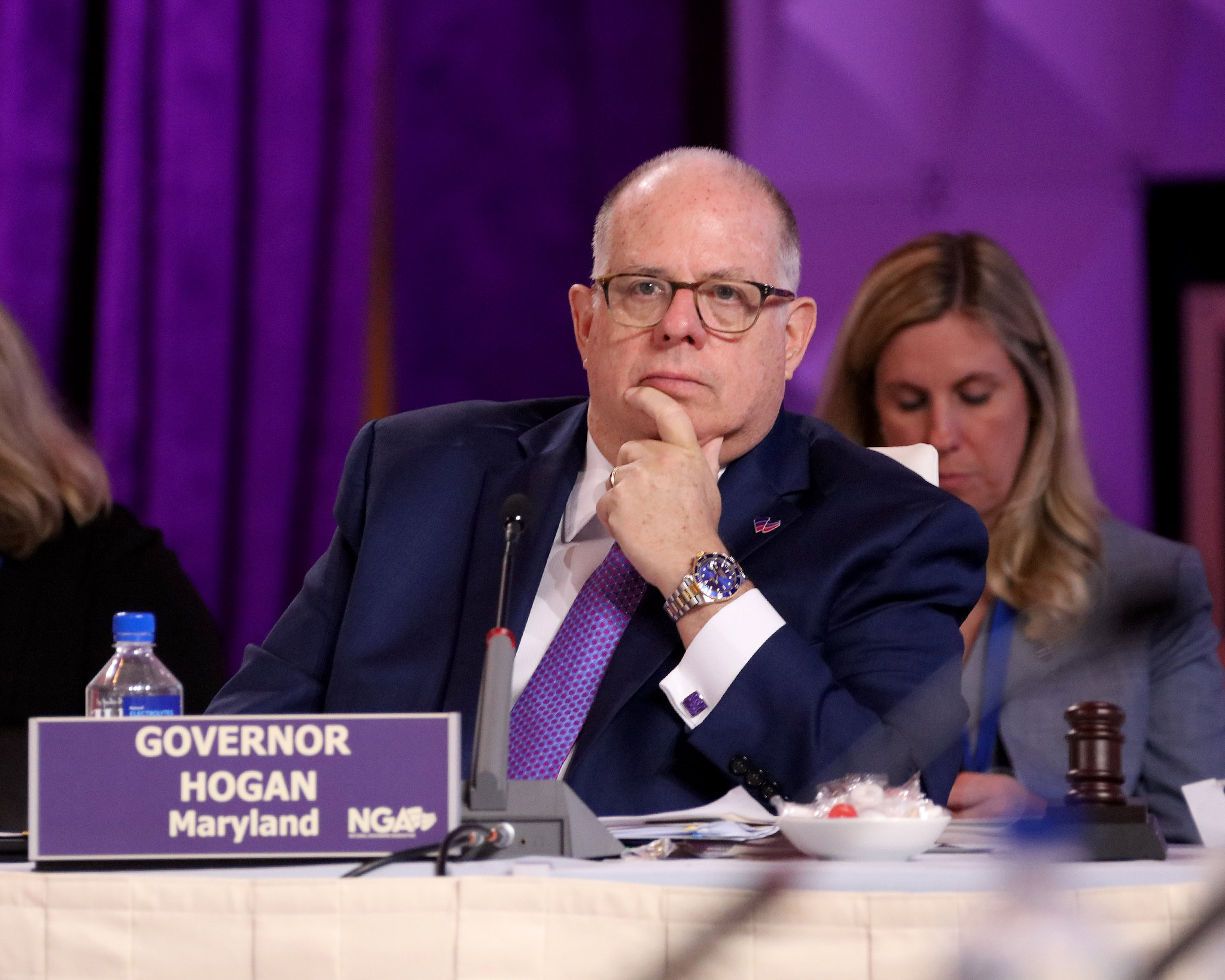Funding Deal for Prescription Drug Board Close, Hogan Administration Says

An exchange of letters between the Hogan administration and the Maryland Health Care Commission appears to offer a path to fund and staff the state’s new Prescription Drug Advisory Board — though the lawmakers who pushed for the panel’s creation are not ready to declare victory.
The correspondence comes in the wake of Republican Gov. Lawrence J. Hogan Jr.’s initial refusal to fund the board’s first year of operations — a total of $830,000.
The drug board, which the legislature created earlier this year with bipartisan support, is charged with coming up with ways of forcing down the cost of medications judged to be overly expensive, as a way of providing consumers with relief.
In an Aug. 29 letter to Andrew N. Pollak, chairman of the Maryland Health Care Commission, Hogan sought resources for the drug board.
“This is an important endeavor, and I want to ensure that it can move forward as soon as possible,” Hogan wrote. “Your commission shares a similar goal in helping to ensure access to health care needs in Maryland, which is why I am asking the Commission to provide this Board with the resources necessary to advance its work.”
Hogan also indicates that he has asked the Department of Budget and Management “to work with you to ensure that staffing needs can be met, consistent with the legislature’s intent.”
In an Aug. 30 reply to Hogan’s chief of staff, Matthew Clark, from Ben Steffen, the commission’s executive director, the commission pledged to support the board’s launch.
“The MHCC will work with the Department of Budget and Management to determine the most effective approach to meeting the short and long-term staffing needs of the Board,” Steffen wrote.
Despite Hogan’s use of the phrase “consistent with the legislature’s intent,” some of the lawmakers who pushed for the creation of the prescription drug panel aren’t convinced it will be receiving the resources the new law calls for.
“I don’t know that legally it can be done that way, because of the way the bill is worded,” said Del. Joseline Peña-Melnyk (D-Prince George’s & Anne Arundel), chief House sponsor of the legislation.
The lawmaker said she has asked for Attorney General Brian E. Frosh (D) to review the administration’s funding stance, to determine if commission and/or executive branch funding complies with the new law’s mandate that the drug board be independent.
“I am all in support of finding the money, but I just wonder whether we are violating the essence of the bill,” she said. “It’s important for [the board] to be free of any influences. … That’s why it was so important to have its own staff, its own budget, its own chair.”

Sen. Brian J. Feldman (D-Montgomery) is among the lawmakers wondering whether the governor’s actions line up with the intent of the legislation.
Sen. Brian J. Feldman (D-Montgomery), a health care policy leader in the Senate, agreed with Pena-Melnyk.
“It’s not clear if [Hogan] is talking about actual dollars in that letter or if he’s talking about personnel from the commission,” he said. “But in either case, this is a commission that largely is appointed by the governor and I think it runs into the same problem — you have an issue of independence, and I think that’s legally problematic.”
“The legislation speaks for itself and it very clearly contemplates an independent board with an independent executive director who is hiring independent staff,” Feldman added. “To the extent that the governor agrees with that basic premise, then everybody can be on the same page, but anything that’s at odds with that, I think is legally problematic.”
Michael Ricci, the governor’s communications director, said he’s confused why anybody would be confused.
“Doesn’t the letter say ‘consistent with the legislature’s intent?’ Ricci wrote in an email. “What’s to interpret?”
Ricci said the letter from the health care commission makes it clear how officials will proceed.
“The commission letter indicates they are going to do it. It’s starting to feel like goalpost-moving here.”
The skirmish involves approximately $830,000 for the panel’s first year of operation — $750,000 for staff and $80,000 for an assistant attorney general to offer support.
The legislation creating the prescription drug panel requires it to come up with its own funding sources once it is up and running.
Feldman said the state funds needed are “little more than a short-term loan that would be paid back once there is a permanent funding mechanism in place.”




 Creative Commons Attribution
Creative Commons Attribution